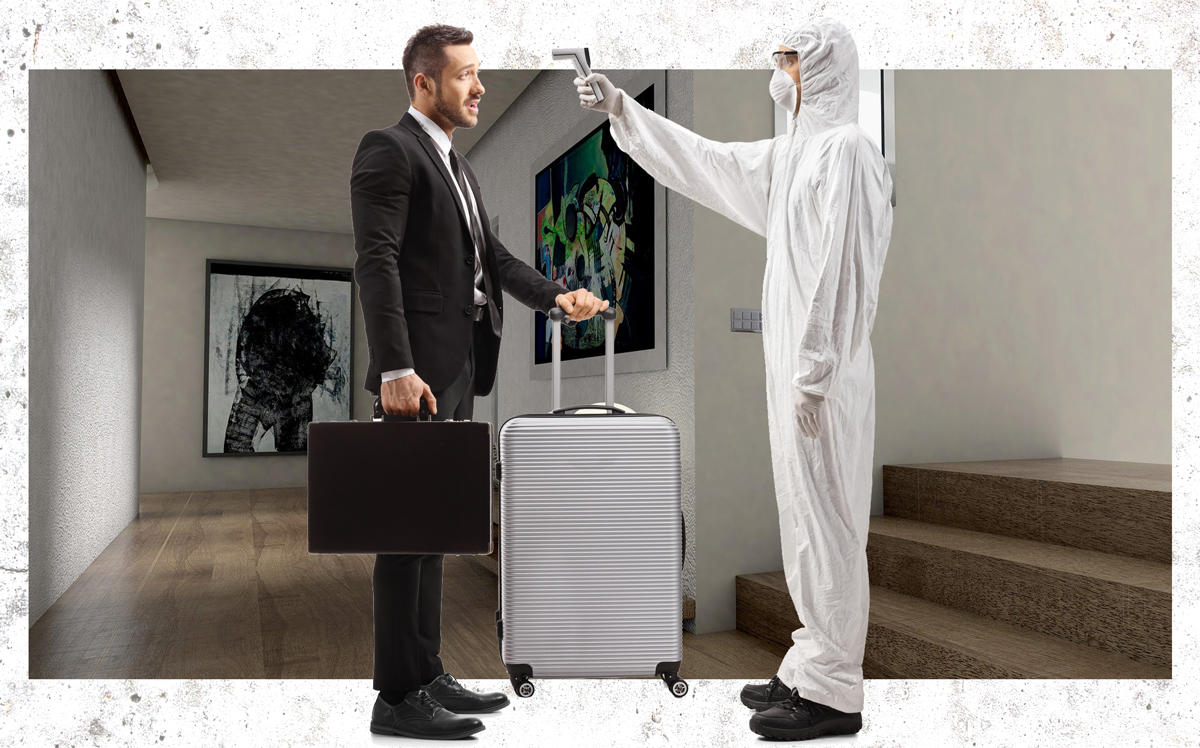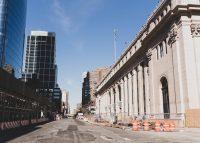 Cuomo announces drastic rules: No gathering, no going to work
Cuomo announces drastic rules: No gathering, no going to work
Trending
Break quarantine? Your co-op board can sue
In a dense city reeling from coronavirus, lawsuits may be a deterrent

New York City condos and co-ops can look to the courts when neighbors don’t abide by social distancing or quarantines, some lawyers say.
The state has barred public and private gatherings and ordered everyone except those working in essential businesses to mostly stay home. Health officials advise anyone with Covid-19 symptoms or who’s been exposed to someone who’s tested positive for coronavirus to self-quarantine for 14 days.
But not everybody takes those directives the same way. And in New York City’s high-rise condominiums and cooperatives, one person’s recklessness can affect hundreds.
As a result, some buildings are seeking recourse for perceived misbehavior — or even nearby construction work — and some lawyers are advising they take neighbors to court.
“What should boards do if a coronavirus-positive resident fails to follow a building’s coronavirus protocols, exposing others to danger?” law firm Schwartz Sladkus Reich Greenberg Atlas said in a memo to its roughly 300 condo and co-op board clients. “If residents or tenants are gathering in groups or allowing workers, personal trainers and other non-essential visitors into their apartments?”
Its answer was, take them to court — and the law firm isn’t alone.
Read more
 Cuomo announces drastic rules: No gathering, no going to work
Cuomo announces drastic rules: No gathering, no going to work
 Landlords extend building workers’ benefits in light of pandemic
Landlords extend building workers’ benefits in light of pandemic
 Two construction sites shut down as workers get Covid-19
Two construction sites shut down as workers get Covid-19
The state’s chief administrative judge issued a directive Sunday that New York courts would no longer be accepting filings on non-essential matters.
But the administrative order exempted “essential proceedings” that courts will continue to address and noted that courts would allow “emergency applications related to the coronavirus.”
That gives residential buildings an opening, according to law firms that represent close to 500 condo and co-op boards across the city.
Schwartz Sladkus is recommending buildings seek “emergency injunctive relief” if neighbors flout building policies meant to stop the spread of coronavirus.
“The last thing anyone wants is litigation,” said Steven Sladkus, who runs the firm’s litigation group. “But in this particular context, if people’s health, safety and welfare are potentially being jeopardized, that seems good enough reason.”
“I’m really not trying to promote litigation or egg things on, but I want to let people know that there’s a way to deal with this hopefully,” he added.
Sladkus said he has fielded questions from three buildings struggling with a resident violating quarantine protocols and his firm has received an “enormous” number of inquiries on the subject.
Debra Guzov’s firm, Guzov LLC, sent out a similar notice to her 100 condo and co-op board clients, advising them that judicial relief was possible for health and safety concerns related to coronavirus.
She emphasized that a lawsuit is a last resort, but added that the concerns she is hearing from buildings involve not residents but nearby construction sites.
“It’s close quarters in New York,” she said. “Sometimes the construction is going on very close to a window where someone is living. It could be their bedroom… [and] there are certainly health concerns.”
Construction has been allowed to continue as usual in New York as Cuomo has deemed it an essential business. But some job sites have closed after a worker contracted Covid-19.
Stuart Saft, a partner at Holland & Knight and the president of the Council of New York Cooperatives and Condominiums, called litigation an “expensive and time consuming approach.” He maintained that the fastest and cheapest way for buildings to deal with a quarantine violator would be to call the city’s Department of Health.
But he noted that buildings may want to send residents or tenants a notice that if they violate a quarantine or another part of the building’s coronavirus protocol, they could be on the hook for all costs that the co-op, condo or landlord incurs to deal with them.
Leni Morrison Cummins, an attorney at Cozen O’Connor, which represents roughly 75 condo and co-op boards, also questioned taking the drastic measure of filing a lawsuit.
“If the behavior has already happened, there’s nothing for the court to order. It’s moot,” she said, pointing to the example of a resident moving in or out of a unit, which many buildings have barred. “Even if you run to court the same day, that mover is already in the building.”
Instead, she recommended that boards able to penalize owners or shareholders impose “hefty fines” up to $1,000 for those who violate building coronavirus policies.
“I find that financial ramifications do curtail most bad behavior,” she said, though she acknowledged that for an “ongoing threat” to residents’ health and safety she would consider emergency action via the courts.
Sladkus’ firm previously recommended that buildings reach out to the Centers for Disease Control or appropriate city or state agencies over safety concerns related to the pandemic, but now says that is “no longer feasible, given the overwhelming demands now placed on those agencies.”
Write to Erin Hudson at ekh@therealdeal.com




